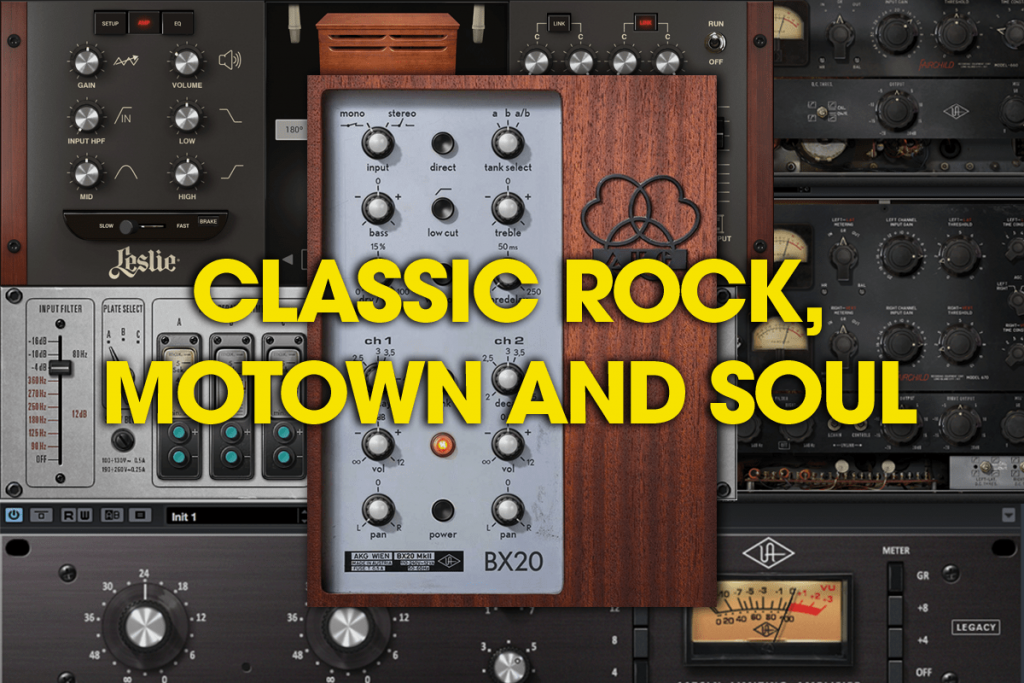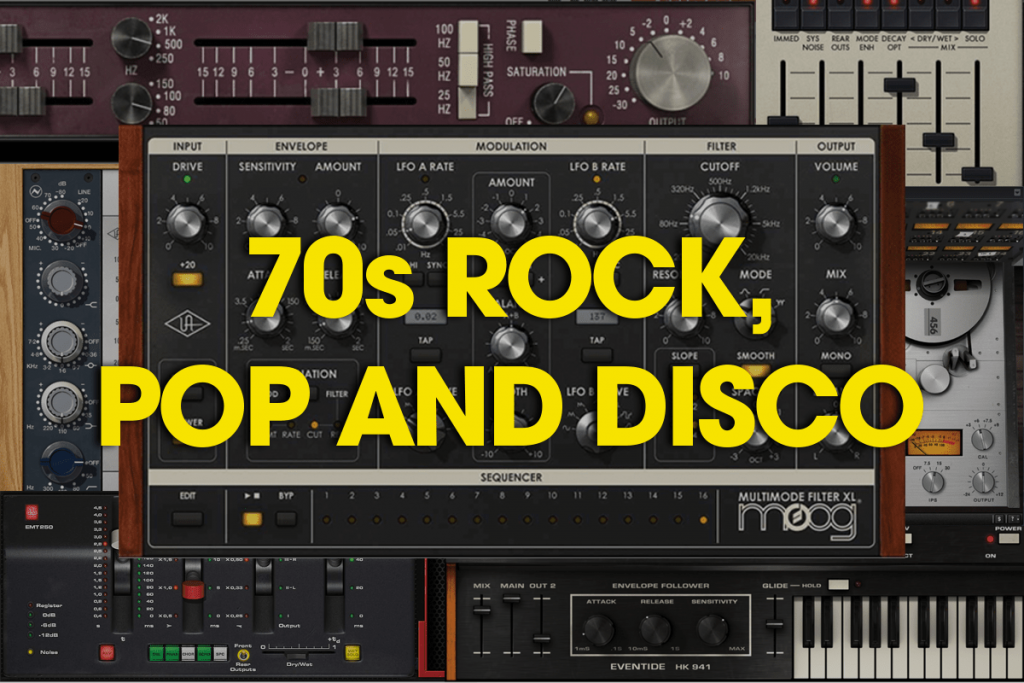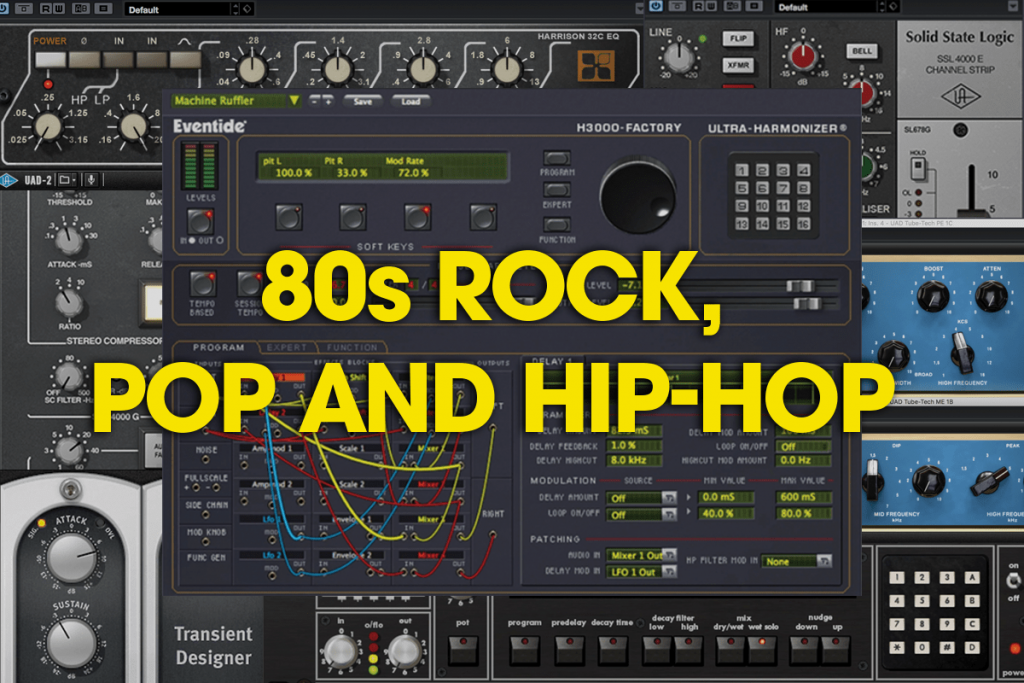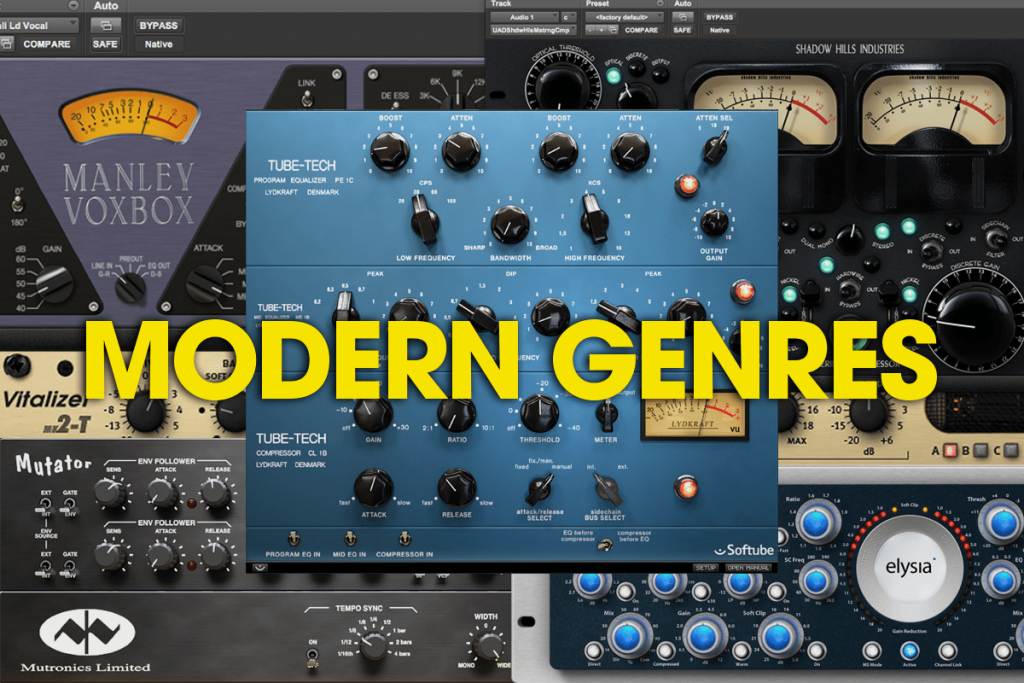How To Get The Classic Studio Sound – The Hub
These days, it’s easier than ever to get your hands on the sought-after tools that were once beyond the realms of possibility for non-professional musicians to use. In this feature, our resident hitmaker Marc JB explores the most effective gear, in both software and hardware, to use for a wide range of genres and approaches […]
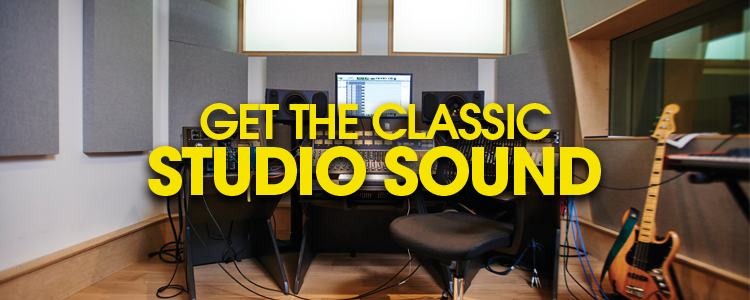
These days, it’s easier than ever to get your hands on the sought-after tools that were once beyond the realms of possibility for non-professional musicians to use. In this feature, our resident hitmaker Marc JB explores the most effective gear, in both software and hardware, to use for a wide range of genres and approaches – the same gear that was used to build the hits of yesteryear…
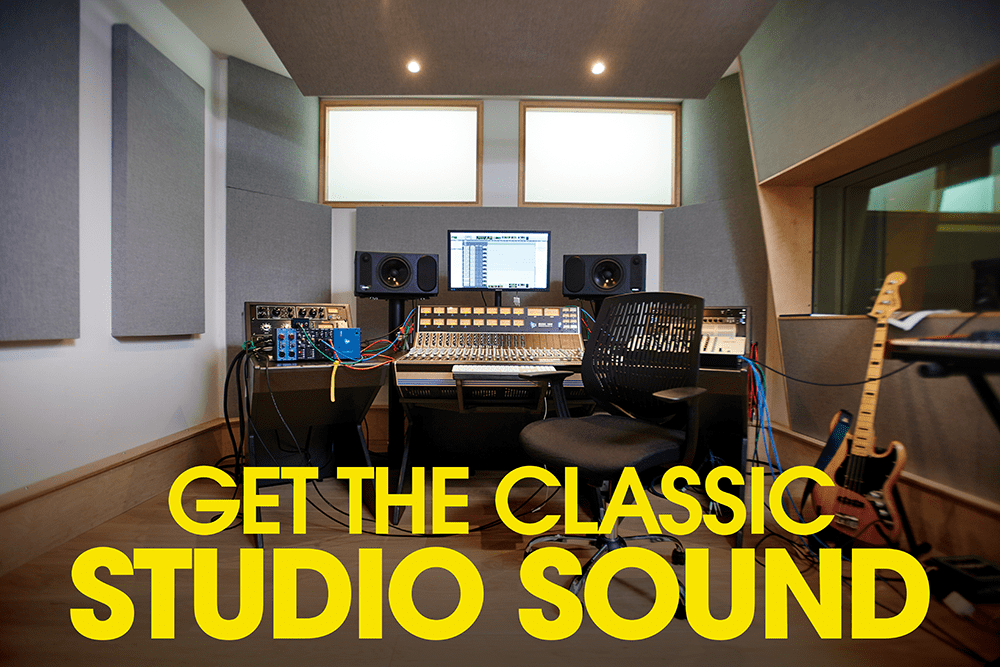
Get ready to dive deep into the world of legendary pro-studio gear and the modern emulation software that’s shaped the sound of many of the key genres in popular music. In this feature, we’re essentially going to show you how to recreate various ‘sonic signatures’ from music history. Throughout the next few pages, we’re going to be exploring some key pieces of technology and highlight just what they do, how they have been
and indeed still are being used – and how you can now use them yourself in software form to get that genre-specific hit sound for your own productions, more conveniently and at a fraction of the cost.
Now is an exciting and somewhat boundary-free time to be a producer of music. We have the means to achieve the ‘big studio sound’ in our own homes, and with minimal outlay, by using authentic emulations of classic studio equipment. There’s a colossal array of classic studio-gear emulations on the market, though, so to avoid being overwhelmed, it’s better that you have some understanding of each particular piece of gear’s history and what kind of music it was primarily used for, before you decide whether you need it for your production.
Many companies model classic gear to bring us coveted sonics. Music software giants such as Universal Audio (whose hardware-DSP-powered UAD plug-ins feature heavily in our rundown), Waves, Softube, IK Multimedia, Steinberg, Slate, Eventide, Lexicon, Soundtoys and Plugin Alliance have music laboratories full of white-coated geniuses (we imagine), reverse-engineering gear for our benefit.
There are two basic ways in which a plug-in designer can analyse analogue and digital gear to create a software emulation. Firstly, they can run different audio signals through the unit (such as Sine sweeps and wide-band signals at various levels) and capture the output for all front-panel settings. The resulting signals are then analysed for changes in factors that include EQ, distortion and phase change to create a mathematical DSP model that can be then used to emulate the hardware unit.
With the second method, the unit is taken apart component by component. Every capacitor, valve and stage are analysed for their behaviours. Mathematical models are built up and the resulting ‘super model’ is tweaked until the software exhibits the closest sonic behaviour to the hardware. Many emulations use a combination of both methods to create the truest representation. Of course, this is all within the limits of development time and available software DSP. Some emulations, such as the AMS RMX16 reverb emulation for UAD, even use the software algorithms from the original unit.
Of course, we’re not disparaging hardware purists here. If you can get your hands on them, we’d always recommend that you go with the real-world kit to truly capture that authentic sound, but it’s not always convenient in terms of size, cost and weight – some hardware units could weigh up to 600lbs and took up an entire room! Software emulations have been progressively improving over the years and even in A/B shootouts, it can be virtually impossible to discern the difference between hardware and software.
So let’s look at some key hardware, grouped by relevant genres, sonic flavours and time periods, as well as the best modern software emulations of it, to help you whittle down your potential choices…
Putting it into action
In the late 80s, I was working in Jackson Studios, Denham, run by my uncles John and Malcolm. They recorded artists such as Tom Robinson Band, Motörhead and Elton John. Having grown up around top-end pro equipment, I set myself a personal challenge to learn about pro gear and use it to impart that same classic richness to the sonic landscape. Pro-studio hardware emulations are an opportunity to raise the game for mixing and production.
The studio gear covered in this feature has largely shaped the sound of music through the decades – by choosing which plug-ins you use, you too can sculpt your sound to be more distinctive. Most of the time, it’s not what you use, but what you don’t use. Remember that before multi-track recording, a band would have to gather around a mic and play in one take, but ever since then, gear choices have shaped what we hear.
We’ve only touched upon a fraction of the amazing gear that’s shaped our music legacy. There’s a huge world to explore and integrate into your setup. As a producer, I’ve started to use more classic gear (or emulations of it) to try and fully achieve that authentic vintage sound… I recommend you do, too!
In a world where machine-learning algorithms and increasingly advanced software are progressively taking over studio mixing/production processes, mixing with emulations is a great way develop knowledge of authentic recording techniques and set yourself apart.
Overall, we’d suggest that you use the tools highlighted in this feature to make something that reflects what you feel and who you are. It’s when other people can connect to your music at a deep level that it has a long-lasting and profound effect. This is the secret to success and to making a good living from creating music.
